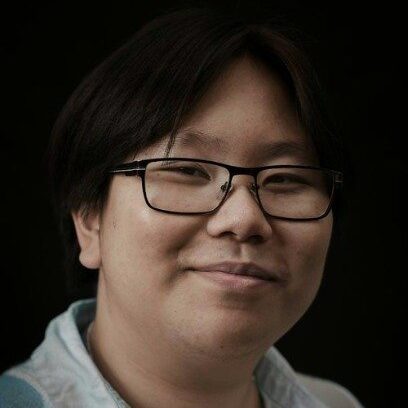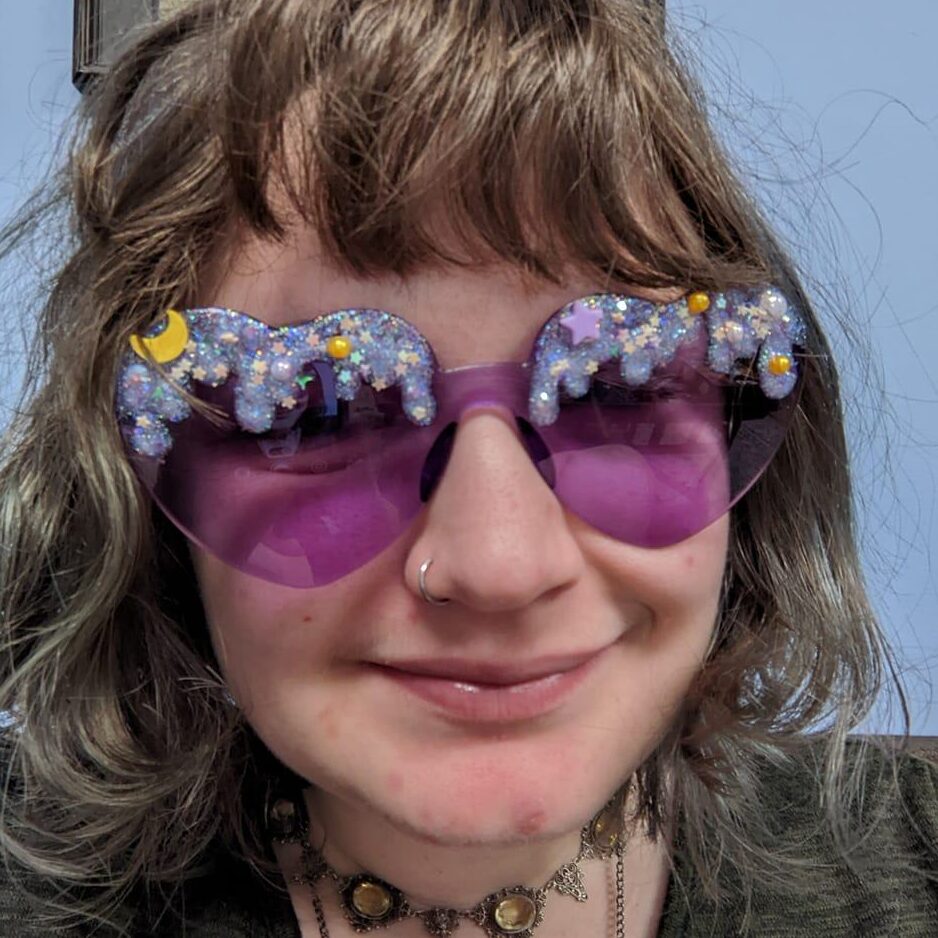When teen tarot reader Iris Galacia is given an ultimatum – earn a thousand coins or leave the family business – it sets her off on a quest to save an unjustly imprisoned witch from royal hands and, perhaps even harder, to leave home for the first time in eighteen years.
To accomplish both of these things she will have to put her trust in the charming Marin Boudreau, a whole cast of queer and neurodivergent characters, and herself.
We spoke with Li about their debut novel Tell Me How It Ends, writing a series, and their queer and neurodiverse cast of characters. This interview has been edited and condensed for clarity.
I would love to hear more about the representation in your book. You mentioned there is autism, anxiety, ADHD, mute and deaf rep. Could you tell me how these are represented?
The main character of Tell Me How It Ends is Iris Galacia, a tarot reader who also has autism and anxiety. While her labels aren’t explicitly mentioned, they are heavily implied in the way she thinks, acts, and rationalises things. These experiences are similar to my own at a younger point in life. Iris is prone to being oblivious both for her lack of life experience and her neurodivergence, which has resonated with readers in a meaningful way – to see themselves in Iris, and then see her overcome obstacles by taking advantage of her way of thinking and abilities.
My secondary main character, Marin Boudreau, is a chaotic non-binary ball of fire who has ADHD. Similarly to Iris, they experience this in their actions and thinking. I enjoy writing this kind of representation because it can feel relatable and like we’re spending time with a friend where we know about them without them needing to say it.
When it comes to mute and deaf rep, there is a pirate captain and a first mate that Iris and Marin meet. I love this pairing as the captain is deaf and mute, yet is highly respected and communicates with their crew members in sign language. We need more awesome characters like this – showing that disability and neurodivergence doesn’t stop someone from being super cool.
Tarot cards are a theme in your book. Has tarot always been a passion of yours?
My time with tarot started when I was younger when I watched my mum use tarot cards, though she never let me touch them or play with them. That came when I grew up and was able to buy my own deck to learn, so it hasn’t always been a passion, but it is rooted in my childhood and I’m very glad for its part in my life now.
Tarot’s ability to provide a lens to different perspectives makes it special. It doesn’t necessarily have to tell the future, but can help us prepare for it and be more open minded. When I was learning more and more about the cards, I was curious about creating a character who was a tarot reader, while not being the most powerful person just because of her magic (at least in this book!).
Iris uses tarot in different ways, from personal reassurance to genuinely seeking answers to problems she comes across. I really enjoyed the diverse range of methods she uses and pulling the cards from my own deck to write into the story, rather than finding the perfect fit every time.
Not only do you have a lot of disability rep, you also have a lot of queer representation. Can you tell us more about that? You cover lesbian, aromantic asexual, bisexual, gay, queer, non-binary, and genderfluid identities. In light of that, do you have advice for writers that may want to write about sexualities and genders different from their own?
Okay so I’m super queer and trans, and will always write these identities into my stories! I believe that we should see more queer fiction in SFF, horror and other cool stories that may not need to focus on a romantic relationship. Queer people exist all around the world, even if they are silenced, and to see them in a fun-filled fantasy adventure – such as what I aim to write – is a callback to the fantasies I read when I was younger, though they lacked this kind of representation.
I do have advice on your follow up question, as I identify as non-binary, pansexual, and on the ace spectrum, so I don’t holey represent every identity I have written. I believe what is important is consuming other media and stories that encapsulate these experiences. Not only fiction, but non-fiction too, even articles, podcasts, or interviews, and speaking to others in your life and community that do relate to these identities. You will only expand your knowledge by listening to others.
On your website, it says, “Book #1 of the Chaos in the Cards series.” Does that mean we have more to look forward to for this fantastical world and characters? If so, what’s the plan for the series?
Yes! I’m so excited to say that there will be more following Tell Me How It Ends. I haven’t officially finalised the series plans in public, as my viewpoint when I was in the process of publishing the novel has shifted from what I consider now, but I can say there will be at least two more books. I’ll have to see when I look at the whole picture of the series once again! Things will get even better and the characters even more powerful, which I’m very excited about. I will be tapping into some big ideas that I hope I can execute.
What are media works that inspire your writing?
All the indie books I have the pleasure of reading! I love being surrounded by other indie authors and gaining amazing insight by reading their books and understanding what makes them special. Not every gem gets through to trad pub or wants to get there. I also love movies with incredible storytelling and the visual aspect of them forms ideas so quickly.
While I don’t remember my favourite movies at the time of writing Tell Me How It Ends, right now I’m loving Everything Everywhere All At Once and the SpiderVerse Trilogy (at least the movies that are out!).
And finally, MUSIC! What a great way to immerse yourself and visualise scenes while writing your novel.
Is there anything else you would like to share?
I’d love to thank everyone who has read my debut novel so far. It means so much to me, and my favourite moments are seeing comments of representation resonating with readers, or readers feeling uplifted by my story. There is more to come, as I’ve mentioned, plus more on the other side of the light, being my works that dive into dark academia themes. And if you are yet to read the novel and would like to, thank you too! I hope you enjoy and fall in love with Iris and Marin.


